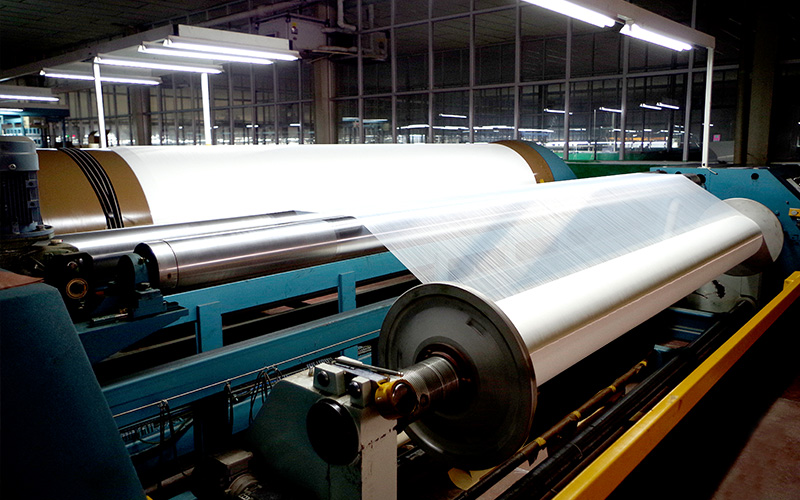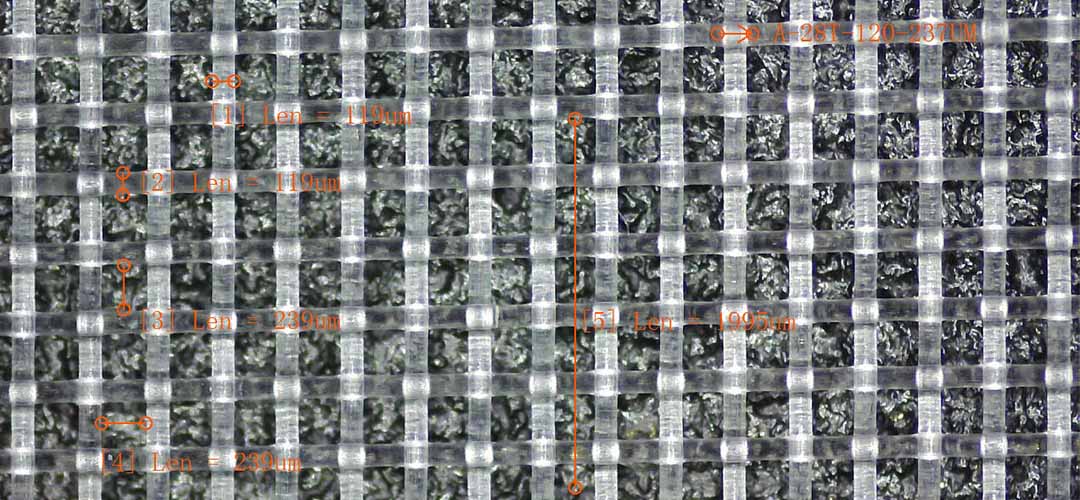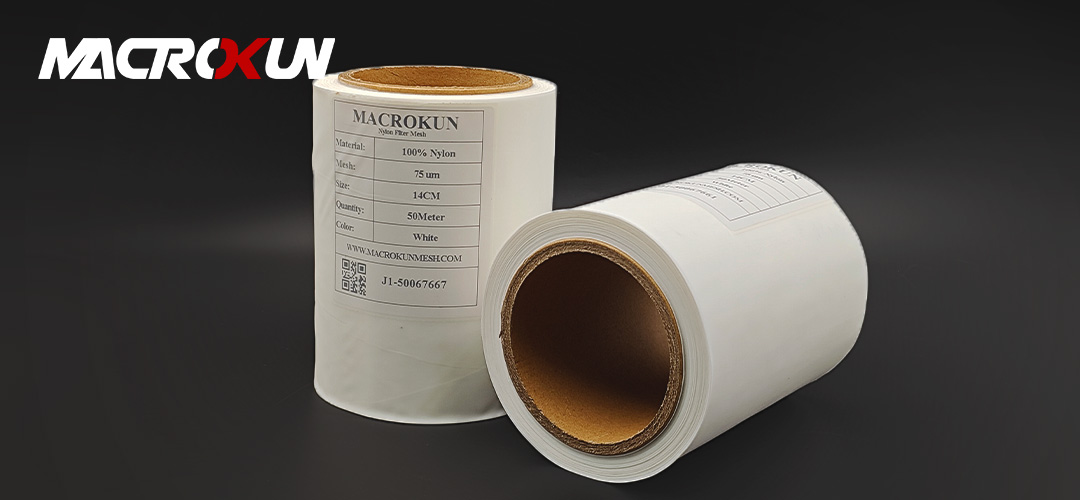Nylon mesh has become a popular choice for material sieving in various industries due to its durability, flexibility, and efficiency. The use of nylon mesh for sieving offers numerous benefits that can enhance the efficiency of material sorting processes.
One of the key advantages of using nylon mesh for sieving is its durability. Nylon is a strong and resilient material that can withstand the rigors of repeated use without losing its shape or integrity. This durability ensures that the mesh can effectively separate materials without tearing or breaking, resulting in a longer lifespan and reduced maintenance costs.
In addition to its durability, nylon mesh is also highly flexible, allowing it to conform to different shapes and sizes of materials being sorted. This flexibility enables the mesh to effectively capture and separate particles of varying sizes, ensuring a more accurate and efficient sorting process. This versatility makes nylon mesh an ideal choice for a wide range of applications, from food processing to pharmaceutical manufacturing.
Furthermore, nylon mesh offers excellent abrasion resistance, making it suitable for sieving abrasive materials without wearing down or losing its effectiveness. This resistance to abrasion ensures that the mesh can maintain its sieving efficiency over time, even when used with challenging materials.
Another benefit of using nylon mesh for sieving is its ease of cleaning and maintenance. Nylon mesh is non-absorbent and easy to clean, allowing for quick and efficient removal of debris and contaminants. This ease of cleaning helps to prevent cross-contamination and ensures that the mesh remains hygienic and sanitary, making it ideal for use in industries where cleanliness is paramount.

Moreover, nylon mesh is lightweight and easy to handle, making it convenient to use and transport. Its lightweight nature also reduces the strain on equipment and operators, resulting in a more ergonomic and efficient sorting process. This ease of handling makes nylon mesh a practical choice for industries looking to streamline their material sorting operations.
Additionally, nylon mesh is resistant to chemicals and corrosion, making it suitable for use in harsh environments where exposure to corrosive substances is a concern. This resistance to chemicals ensures that the mesh can maintain its integrity and effectiveness even when exposed to harsh conditions, further enhancing its durability and longevity.
Overall, the benefits of using nylon mesh for sieving are clear. Its durability, flexibility, abrasion resistance, ease of cleaning, and chemical resistance make it an ideal choice for enhancing the efficiency of material sorting processes in various industries. By investing in high-quality nylon mesh for sieving, businesses can improve their sorting accuracy, reduce maintenance costs, and increase overall productivity.
Nylon mesh sieves are essential tools in various industries for sorting and separating materials based on size. They are commonly used in laboratories, manufacturing facilities, and agricultural settings to ensure the quality and consistency of products. To maintain the efficiency and accuracy of nylon mesh sieves, proper maintenance and cleaning are crucial. In this article, we will discuss some tips for maintaining and cleaning nylon mesh sieves to enhance their longevity and performance.
One of the most important aspects of maintaining nylon mesh sieves is regular inspection. Before and after each use, it is essential to inspect the mesh for any signs of damage or wear. Look for tears, holes, or loose threads that could affect the sieving process. If any damage is found, it is important to repair or replace the mesh immediately to prevent further deterioration.
In addition to regular inspections, proper storage of nylon mesh sieves is also key to their longevity. When not in use, store the sieves in a clean, dry, and well-ventilated area to prevent mold or mildew growth. Avoid stacking sieves on top of each other, as this can cause deformation of the mesh. Instead, store them flat or hang them vertically to maintain their shape.

Cleaning nylon mesh sieves is another important aspect of maintenance. After each use, it is crucial to clean the sieves thoroughly to remove any residue or particles that may have accumulated during the sieving process. Start by gently tapping the sieve to dislodge any trapped particles, then rinse it with warm water to remove any remaining debris. Avoid using harsh chemicals or abrasive cleaners, as these can damage the mesh.
For stubborn residue, a mild detergent or cleaning solution can be used to clean nylon mesh sieves. Soak the sieve in the solution for a few minutes, then gently scrub the mesh with a soft brush or sponge to remove the residue. Rinse the sieve thoroughly with clean water to ensure all traces of the cleaning solution are removed.
After cleaning, it is important to dry nylon mesh sieves properly to prevent mold or mildew growth. Allow the sieves to air dry completely before storing them to ensure they are free from moisture. Avoid using heat sources such as ovens or dryers to speed up the drying process, as this can damage the mesh.
In addition to regular maintenance and cleaning, it is important to handle nylon mesh sieves with care to prevent damage. Avoid using excessive force or pressure when sieving materials, as this can cause tears or holes in the mesh. Use appropriate tools and techniques to ensure the sieves are used correctly and efficiently.
By following these tips for proper maintenance and cleaning of nylon mesh sieves, you can enhance their efficiency and longevity. Regular inspections, proper storage, thorough cleaning, and careful handling are essential to ensure the sieves perform optimally and provide accurate results. With proper maintenance, nylon mesh sieves can continue to be valuable tools in material sorting and separation processes.
In the world of material sorting and particle analysis, the choice of sieving material plays a crucial role in determining the efficiency and accuracy of the process. Nylon mesh sieves have gained popularity in recent years due to their durability, flexibility, and cost-effectiveness. In this article, we will compare nylon mesh sieves with other commonly used sieving materials to highlight the advantages they offer in enhancing efficiency in material sorting.
One of the most common materials used for sieving is stainless steel. While stainless steel sieves are known for their durability and resistance to corrosion, they can be heavy and expensive. Nylon mesh sieves, on the other hand, are lightweight and more affordable, making them a practical choice for industries that require frequent sieving operations.

Another popular sieving material is brass, which is known for its high tensile strength and resistance to corrosion. However, brass sieves can be expensive and may not be suitable for applications that require fine particle analysis. Nylon mesh sieves offer a cost-effective alternative that is suitable for a wide range of particle sizes, making them a versatile choice for various industries.
In terms of flexibility, nylon mesh sieves have a distinct advantage over metal sieves. Nylon mesh can be easily stretched and molded to fit different sieve frames, allowing for greater customization and adaptability in sieving operations. This flexibility makes nylon mesh sieves ideal for applications that require sieving of irregularly shaped particles or materials with varying densities.
Nylon mesh sieves also offer superior abrasion resistance compared to metal sieves. The smooth surface of nylon mesh reduces friction during sieving, preventing premature wear and tear on the sieve. This results in longer-lasting sieves that require less frequent replacement, saving time and money in the long run.
Furthermore, nylon mesh sieves are easy to clean and maintain, making them a convenient choice for industries that require frequent sanitation of sieving equipment. Unlike metal sieves, which can rust or corrode if not properly cleaned and dried, nylon mesh sieves are resistant to moisture and can be easily washed with soap and water.
In conclusion, nylon mesh sieves offer a cost-effective, flexible, and durable solution for material sorting and particle analysis. Compared to traditional metal sieves, nylon mesh sieves provide superior abrasion resistance, customization options, and ease of maintenance. Industries looking to enhance efficiency in their sieving operations should consider incorporating nylon mesh sieves into their workflow for improved results and cost savings in the long term.
Pre: Nylon Mesh Filter Rolls: Applications and Benefits
Next: Best Practices for Using Nylon Mesh Filter Cloth in Filtration Systems

MACROKUN has established long-term and stable cooperative relations with many transportation companies such as China Post, DHL, FEDEX, USPS, UPS, etc. Of course, MACROKUN can also provide air and sea transportation. The powerful logistics system enables all MACROKUN'S Printing Mesh, Filter Mesh and Filter Bags and so on to be easily and efficiently transported to any place. For quotes and inquiries, please email our sales team.





